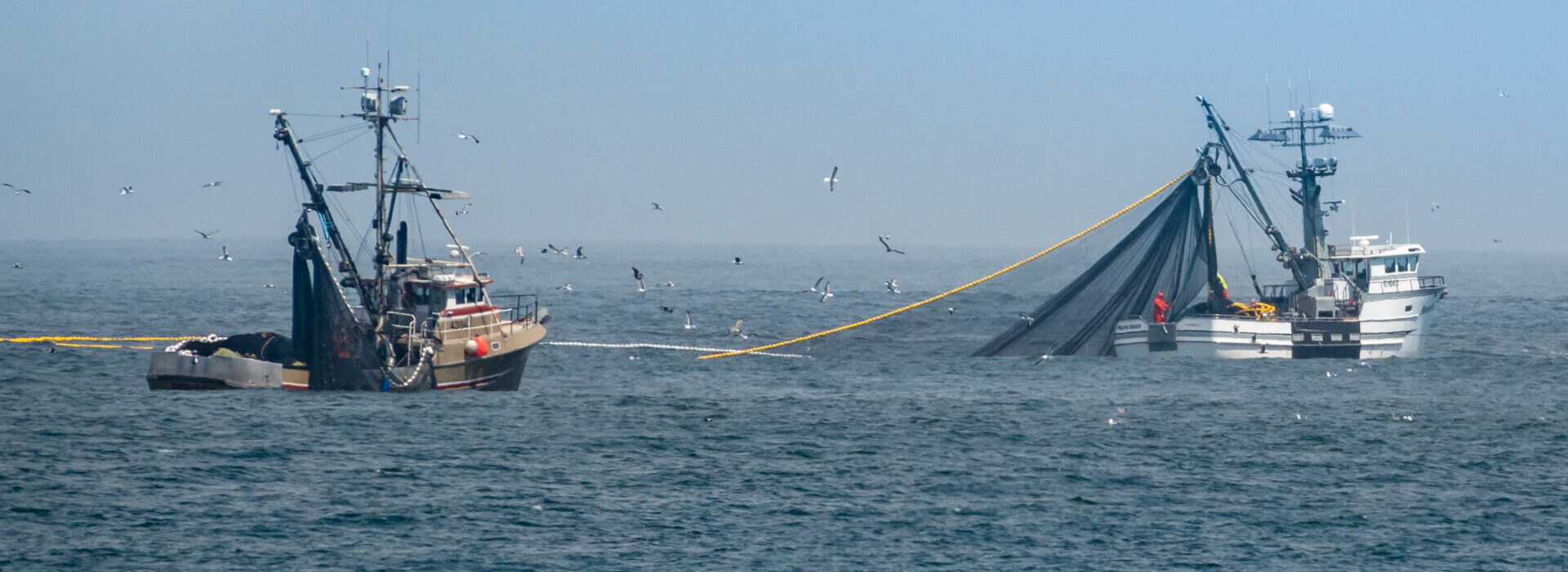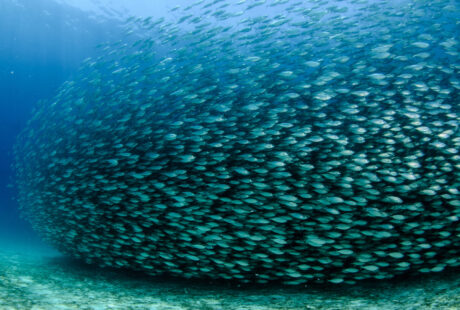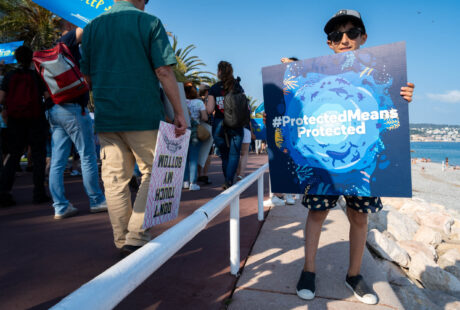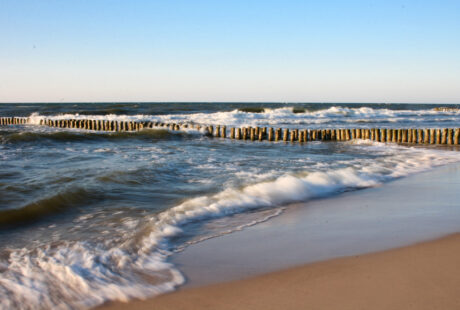As the “One Ocean Summit”, organised under the French EU Presidency takes place in Brest (9-11 February), more than 20 non-profit organisations today called on the European Parliament, the European Commission and the Council of the European Union to put in place an ambitious, revised EU fisheries control system that fully protects the marine environment and contributes to the success of the Biodiversity Strategy and of the European Green Deal.
In an open letter addressed to the three EU institutions, published today, NGOs called on the French Presidency of the EU Council and on Member State governments, along with Members of the European Parliament and the European Commission, to ensure that the revised EU Fisheries Control Regulation contributes to sustainable fisheries management that reduces the impact of fisheries on the marine environment and promotes the protection of species and ecosystems.
The EU Regulation (EC) No 1224/2009, known as the Fisheries Control Regulation [1], is now outdated, and currently under revision. It came into force in 2010 to provide a system of monitoring, inspection and enforcement for fishing operations in EU waters and activities of the EU fleet globally. The control regulation includes responsibilities and obligations for EU Member States with respect to access to their waters and resources, traceability, surveillance of vessels, enforcement and the data collection and documentation of EU fisheries. The European Court of Auditors identified loopholes, which undermine the development of fully documented and transparent fisheries [3]. The current trilogue negotiations on the Regulation started last year and are expected to continue after the French presidency ends in June.
“The ongoing trilogue negotiations provide the opportunity to future-proof the EU’s fisheries control system for the years to come”, said Monica Verbeek, Executive Director of Seas At Risk “It therefore must ensure that EU fisheries will be properly and sustainably managed with the aim to minimise environmental impact of fishing activities, and thus create more climate resilient and healthy marine ecosystems in line with the Biodiversity Strategy goals.
The NGOs are calling on policymakers “to translate these ambitions into a sound revision of the Control Regulation, which will make a difference for biodiversity and climate”.
“Several simple, effective, and financially viable solutions exist. If well implemented, they can strengthen the environmental sustainability of the EU fishing fleet, avoid the death of protected species such as seabirds and dolphins, and contribute to a level playing field for EU fishers, continues Ariel Bruner, Senior Head of Policy at BirdLife Europe.
The NGOs are calling on the EU institutions to ensure that the revised EU Fisheries Control Regulation contributes to sustainable fisheries management that reduces the impact of fisheries on the marine environment and promotes the protection of species and ecosystems, urging them to:
- Ensure that all catches are correctly reported and taken into account. This means no increase in the so-called ‘margin of tolerance’ allowed when fishing operators estimate and report their catches. Sustainability of EU fisheries is only possible if scientists and decision makers actually know what has been caught.
- Ensure that sufficient and robust fishing data are collected on board of all EU fishing vessels, including the recording of incidental catches of sensitive species in electronic logbooks s To be able to verify logbook data, Remote Electronic Monitoring (REM)should be mandatory on all vessels above 12 metres in length as well, as those vessels below 12 metres that are at high-risk of bycatching sensitive species and/or not complying with the Common Fisheries Policy.
- Ensure that vessel tracking systems are installed on all EU fishing vessels, independently of their size. Ensure that non-compliance with EU environmental legislation is considered a serious infringement, including fishing in areas that are closed for protection of species and habitats, as well as failing to implement measures to reduce bycatch.
- Ensure a digital traceability system covering all fish and seafood products available on the EU market (including preserved and/or processed products), which will promote transparency and sustainability of seafood not only within the EU but also in the global fisheries sector.
Notes:
[1] COUNCIL REGULATION (EC) No 1224/2009 of 20 November 2009 establishing a Community control system for ensuring compliance with the rules of the common fisheries policy,
https://eur-lex.europa.eu/legal-content/EN/TXT/?uri=CELEX:32009R1224
[2] Special Report No 08/2017: EU fisheries controls: more efforts needed
https://www.eca.europa.eu/en/Pages/DocItem.aspx?did=41459
[3] The Revision of the EU Fisheries Control System
http://www.transparentfisheries.org/eu-fisheries-control-system/
About:
The EU Fisheries Control Coalition is an alliance of leading NGOs that works with organizations and individuals throughout Europe to secure a fisheries control system that safeguards ocean health and marine resources for generations to come. Find out more about our work here.
Posted on: 11 February 2022



